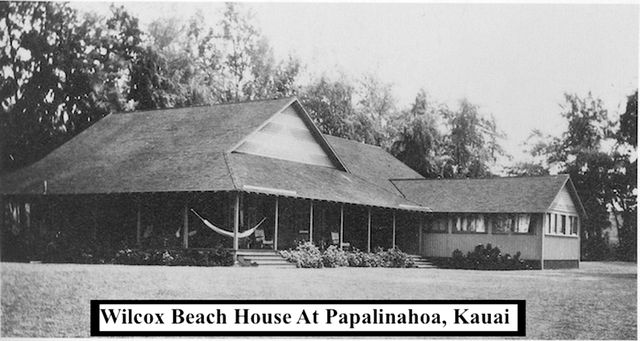On an early evening in December of 1897, Mr. Enoga, the turnkey of the Lihue Jail — then located on the present site of the Bulk Sugar Storage Building in Nawiliwili — was on duty at the jail when he
On an early evening in December of 1897, Mr. Enoga, the turnkey of the Lihue Jail — then located on the present site of the Bulk Sugar Storage Building in Nawiliwili — was on duty at the jail when he heard an explosion emanating from the vicinity of George Norton Wilcox’s beach house, situated on what was then shoreline at Papalinahoa, but what is today the site of the Kauai Athletic Club.
Enoga suspected it was a type of blasting powder called giant powder that had caused the disturbance and immediately notified the captain of police.
When police arrived soon after, they saw John Wyman, an elderly fisherman, gathering fish from the surface of the water fronting Wilcox’s beach house
Police also noted that no hooks, lines or nets were visible, so they arrested Wyman on suspicion of committing the crime of using giant powder for taking fish.
At his trial in the Lihue Court House — on the site where Kauai High School would open in 1914 — Wyman, who was represented by attorney Samuel Kaeo, was found guilty and sentenced by Judge Kahele to a fine of $50.
Although Wyman had not admitted his guilt in court, he did come clean a day or so later when he went to the sheriff’s office to pay his fine, by acknowledging that he had, indeed, blasted a bit of giant powder in order to get some fishing bait.
Afterwards, as word of Wyman’s case spread around Lihue, some residents began to whisper their opinion that the sentence Judge Kahele had imposed upon Wyman was rather heavy.
Come to find out that Judge Kahele had been quite justified in pronouncing his sentence, since he’d been looking forward to enjoying an evening of fishing on the night of the blast, and at the exact spot, also, and he’d been very disappointed when his plans came to naught due to the commotion Wyman had caused.



